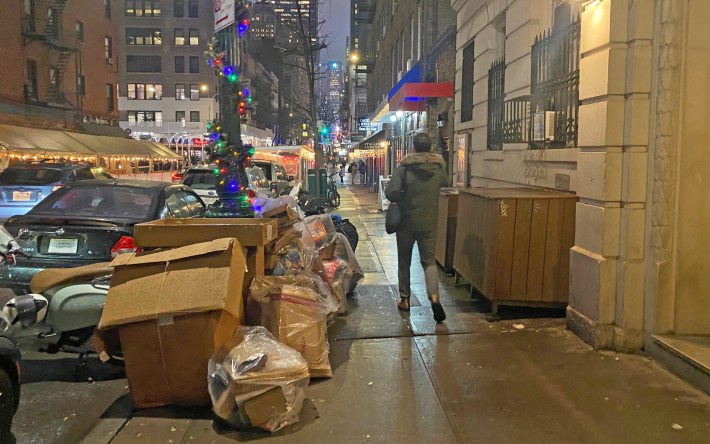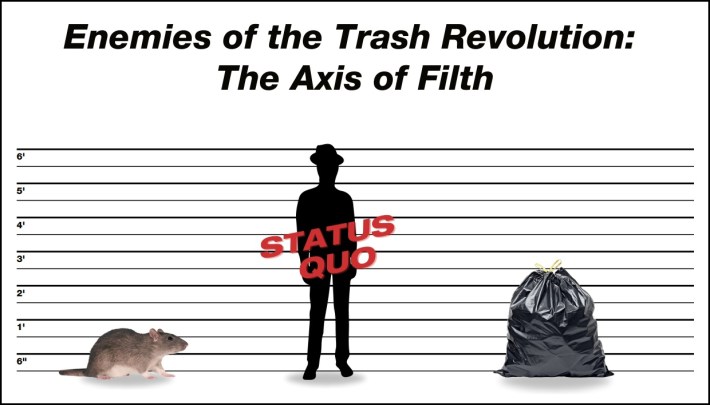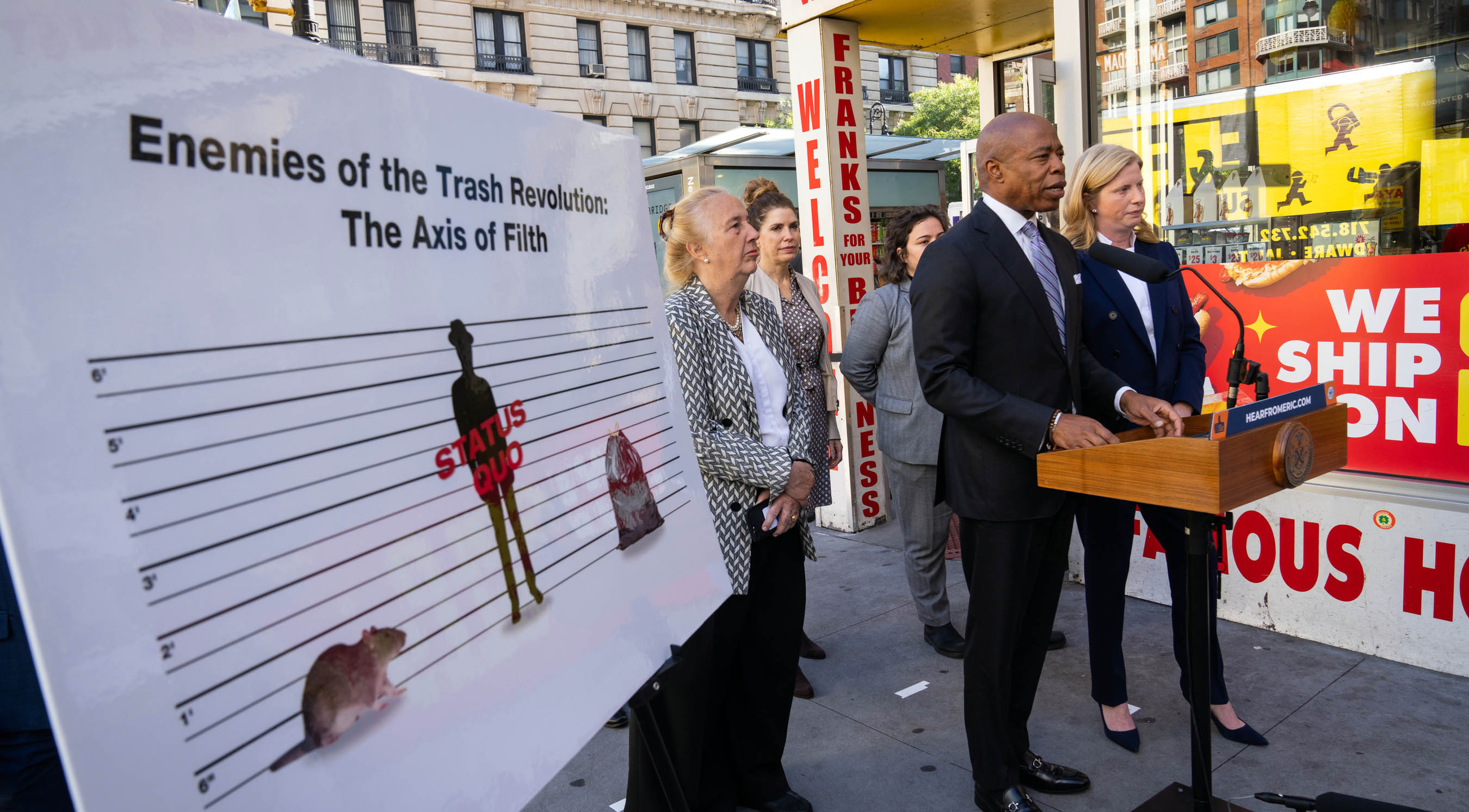The city will require all businesses to leave out their garbage in containers by next March, Mayor Adams and Department of Sanitation leaders announced on Tuesday, but the bins will go on the sidewalk after agency leaders axed an option for commercial establishments to put rubbish containers in public roadway space currently used for storing privately owned cars.
The containers are a long-overdue improvement over the status quo of oozing heaps of black bags that line the city’s streets and attract rats, but the bins should also be placed in the curb lane so they don’t seize the city’s already narrow pedestrian space, according to advocates.
“Containerization is great, but the advocates' ... were more focused on removing all garbage in any shape from the sidewalk to free up walking space,” said Christine Berthet, founder of the pedestrian advocacy group CHEKPEDS, who has long pushed for having trash containers take space from parked cars, not people.
Under the proposed rules [PDF], all commercial garbage will have to be containerized in rigid receptacles with tight-fitting lids by March 1, 2024. The changes expand regulations from July 30 for food and chain businesses to all commercial garbage, which accounts for some 20 million pounds of the 44 million pounds of waste New Yorkers dump on the curb each day.
Berthet raised the alarm bells earlier this year when the Department of Sanitation first unveiled its container rules for the eateries and chains, specifically calling out a clause that allows businesses with limited storage space to keep their bins on the sidewalk around the clock, adding permanent clutter on the city’s limited pedestrian space.
On busy corridors with narrow sidewalks for pedestrians, that setup could pen in pedestrians between the bins lining the buildings and trash from other buildings awaiting collection on the other side, according to Berthet.

The latest expansion also comes on the heels of DSNY suspending the de Blasio-era Clean Curbs program, which did offer businesses the option of putting garbage containers in the roadway.
Three businesses that had already been pre-approved will be able to set up stationary bins in the roadway under the now-closed initiative, according to an agency spokesman.
The residential part of the program on one Hells Kitchen block ended early last month after DSNY Commissioner Jessica Tisch said that pilot was unsuitable citywide because garbage bags ended up outside the bins and it still relied on Sanitation workers hauling bags out of the enclosures by hand.
New York’s Strongest launched a more promising residential pilot in West Harlem that collects garbage from curbside containers on 10 blocks along with 14 schools.
Tisch labeled her agency's latest effort as a challenge to the city's "Axis of Filth," which includes rats, garbage bags, and, apparently, all New Yorkers who like the status quo, according to this graphic the agency presented:

"To the status quo, I pose one question: do you really, honestly believe that Barcelona, Amsterdam, Paris and other world class cities can containerize their waste, but that New York City cannot?" Tisch said.
When asked by Streetsblog at the press conference why Sanitation couldn't follow suit with roadside containers for commercial trash, the trash czar said that smaller individual wheeled bins made more sense because businesses get their collections from different private carters, unlike residences, which get pickups from DSNY.
Agency reps declined to say why businesses couldn't just leave wheelie bins in the curb lane instead, which Status Quo sees as reserved for the free storage of private vehicles.
"These larger containers that you would place in the parking lane would make sense if you could have several businesses putting their trash in the same containers, but because each business uses its own private carter to haul its waste, it makes more sense in New York City to have them, each business using the individual bins," Tisch said.
For a sense scale, a DSNY study from earlier this year found that containerizing residential trash in the curb require repurposing about 10 percent of the city's road space, equivalent to 150,000 parking spots.
There is also a long-stalled plan to organize the city into 20 commercial waste zones with up to three private haulers in each area, which has been repeatedly delayed until the second half of 2024. One business leader believes that reform could help officials consolidate commercial waste pickup even more so businesses can more easily share private collection companies and bins.
“What if they’d bundled that in with the commercial waste reforms?” said Liz Picarazzi, the founder and CEO of Brooklyn-based CITIBIN, which has been installing containers under the Clean Curbs program. “[Containerization and commercial waste zones] shouldn’t be a separate project, those two should work hand-in-hand. They could do one without the other, but man, would that be a lost opportunity.”
DSNY will hold a virtual hearing on the rule expansion on Oct. 24 at 10 a.m. Tune in here.






